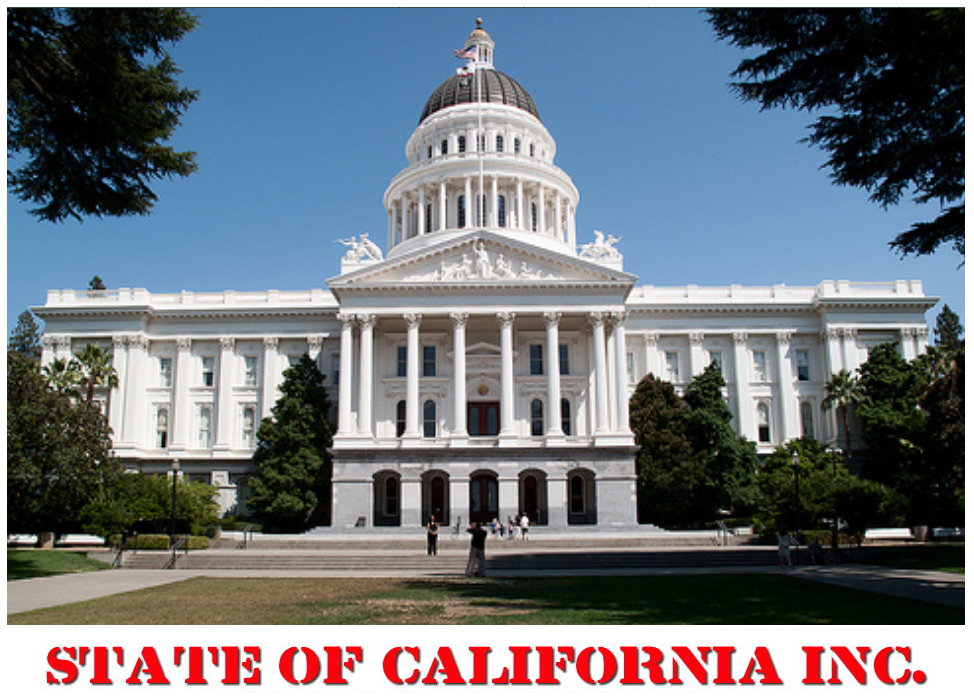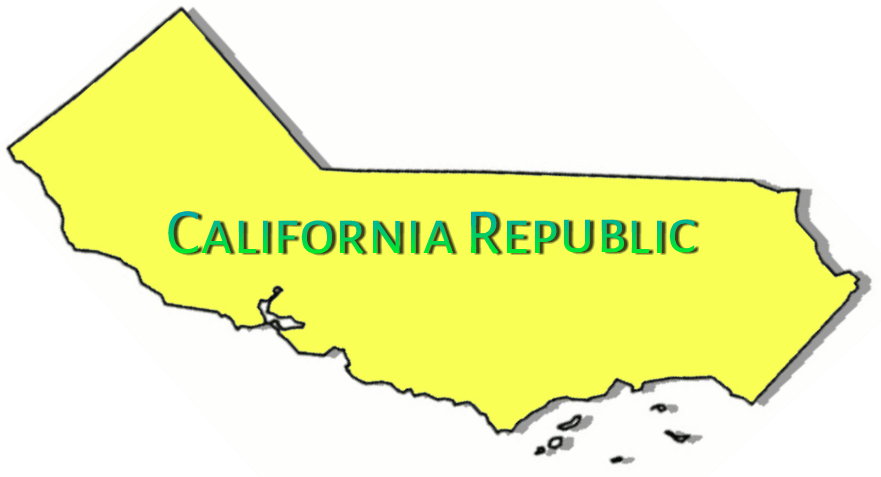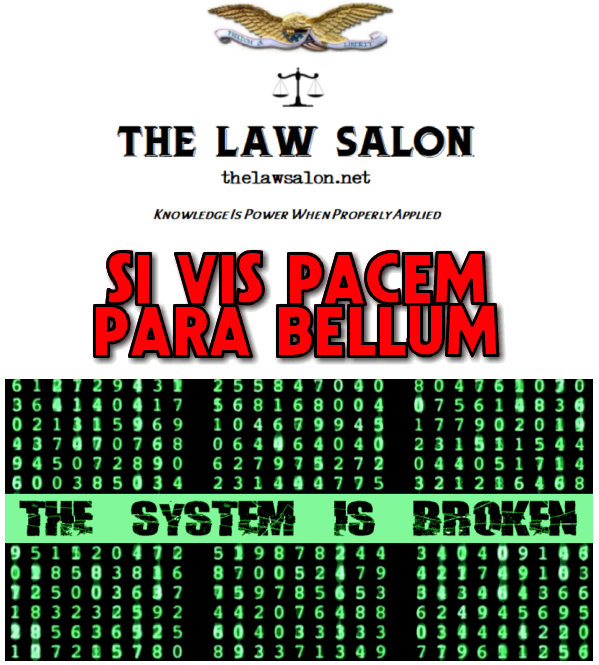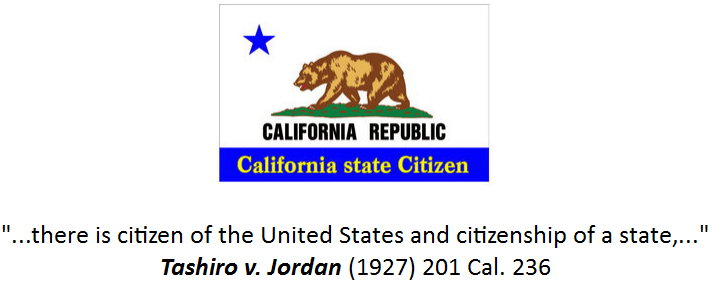It will be observed that the people, who are sovereign,...
In re Keddy (June 20, 1951) 105 Cal.App.2d 215


CALIFORNIA GOVERNMENT CODE
SOVEREIGNTY OF THE STATE
Div. 1
100.(a) The sovereignty of the state resides in the people thereof,...
11120.
It is the public policy of this state that public agencies exist to aid
in the conduct of the people's business and the proceedings of public
agencies be conducted openly so that the public may remain informed.
In enacting this article the Legislature finds and
declares that it is the intent of the law that actions of state
agencies be taken openly and that their deliberation be conducted
openly.
The people of this state do not yield their
sovereignty to the agencies which serve them. The people,
in delegating authority, do not give their public servants the right to
decide what is good for the people to know and what is not good for
them to know. The people insist on remaining informed so
that they may retain control over the instruments they have created.
This article shall be known and may be cited as the Bagley-Keene Open Meeting Act.
54950 DECLARATION OF LEGISLATIVE PURPOSE
. "In enacting this chapter, the Legislature finds and declares
that the public commissions, boards and councils and the other public
agencies in this State exist to aid in the conduct of the people's
business. It is the intent of the law that their actions be
taken openly and that their deliberations be conducted openly.
The people of this State do not yield their
sovereignty to the agencies which serve them. The people,
in delegating authority, do not give their public servants the right to
decide what is good for the people to know and what is not good for
them to know. The people insist on remaining informed so
that they may retain control over the instruments they have created".
[2] The people of the State of
California are supreme and have the undoubted right to protect
themselves and to preserve the form of government...
Steiner v. Darby (1948) 88 Cal.App.2d 481
[11] Moreover, property owned by
the state is held in trust for the people of the state, and may not be
lost or abandoned through the negligence of its officers or agents.
Bartholomew v Staheli, 86 Cal.App.2d 844
[Civ. No. 7473. Third Dist. July 22, 1948.]
"Municipal authorities, as trustees for the public, ...
Pittsford v. City of Los Angeles (1942) 50 Cal.App.2d 25
"Statutes employing the word 'person' are ordinarily construed to exclude the sovereign."
56 L.Ed. 2d. 895
"[I]n common usage, the term
`person' does not include the sovereign, [and] statutes employing the
phrase are ordinarily construed to exclude it."
Wilson v. Omaha Indian Tribe, 442 U.S. 653 (1979)
“Since, in common usage, the term
'person' does not include the sovereign, statutes employing the phrase
are ordinarily construed to exclude it”.
“The Government admits that often
the word 'person' is used in such a sense as not to include the
sovereign but urges that where, as in the present instance, its wider
application is consistent with, and tends to effectuate, the public
policy evidenced by the statute, the term should be held to embrace the
Government”.
United States v. Cooper Corp., 312 U.S. 600, 604 (1941)
“Section 13, in the first instance,
declares a case to be of this type when it 'involves persons' or
'involves any conflicting or competing interests' in a labor dispute of
'persons' who stand in any one of several defined economic
relationships. And 'persons' must be involved on both sides
of the case, or the conflicting interests of 'persons' on both sides of
the dispute. The Act does not define 'persons'. In
common usage that term does not include the sovereign, and statutes
employing it will ordinarily not be construed to do so.
Congress made express provision, R.S. 1, 1 U.S.C. 1, 1 U.S.C.A. 1, for
the term to extend to partnerships and corporations, and in 13 of the
Act itself for it to extend to associations.
U.S. v United Mine Workers, 330 U.S. 258

IN THE FIELD OF LAW, THIS IS A “PERSON”:

 "State of California" is the NAME of the CORPORATION
"State of California" is the NAME of the CORPORATION
 ~~~~~~~~~~~~
~~~~~~~~~~~~
 That is the NAME of the DIRT upon which the State of California is located
That is the NAME of the DIRT upon which the State of California is located

Citizen And Resident Are Not Synonymous
Of course the terms 'resident' and 'citizen' are not synonymous, and in
some cases the distinction is important [252 U.S. 60, 79]
TRAVIS v. YALE & TOWNE MFG. CO., 252 U.S. 60 (1920)
The court thus distinguishes between citizens and residents... ...residence and citizenship being different things.
La Tourette v. McMaster, 248 U.S. 465 (1919)
'Citizenship and residence are not the same thing, nor does one include the other.
Cummings v. Wingo, 31 S.C. 427 (1889)
We think the suggestion has
never been made - certainly never entertained by this Court - that the
United States may impose cumulative penalties above and beyond those
specified by state law for infractions of the state's criminal code by
its own citizens. The affirmative of such a proposition
would obliterate the distinction between the delegated powers of the
federal government and those reserved to the states and to their
citizens. The implications from a decision sustaining such an
imposition would be startling. The concession of such a
power would open the door to unlimited regulation of matters of state
concern by federal authority. The regulation of the conduct
of its own citizens belongs to the state, not to the United States. The
right to impose sanctions for violations of the state's laws inheres in
the body of its citizens speaking through their representatives."
U.S. v. CONSTANTINE, 296 U.S. 287 (1935)
























